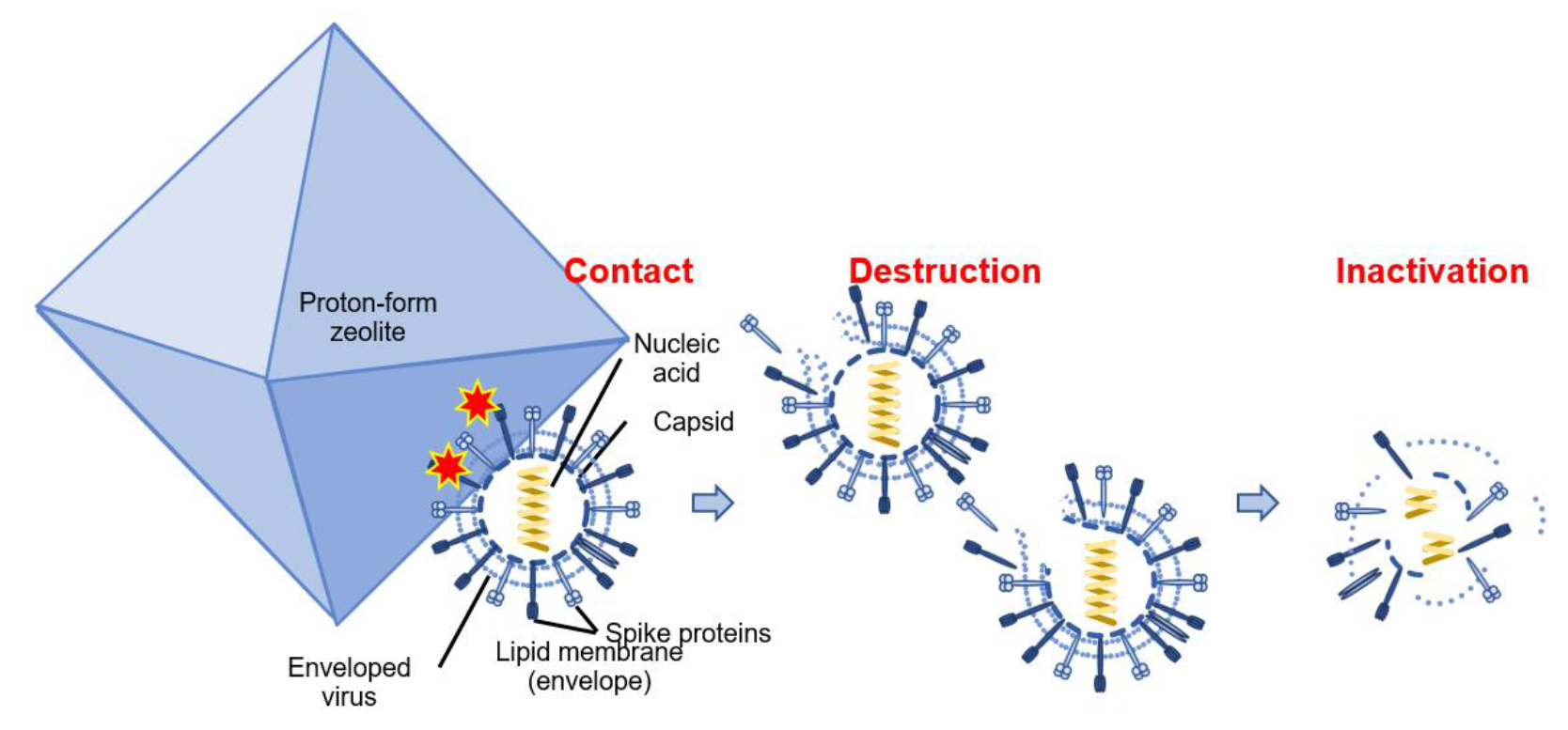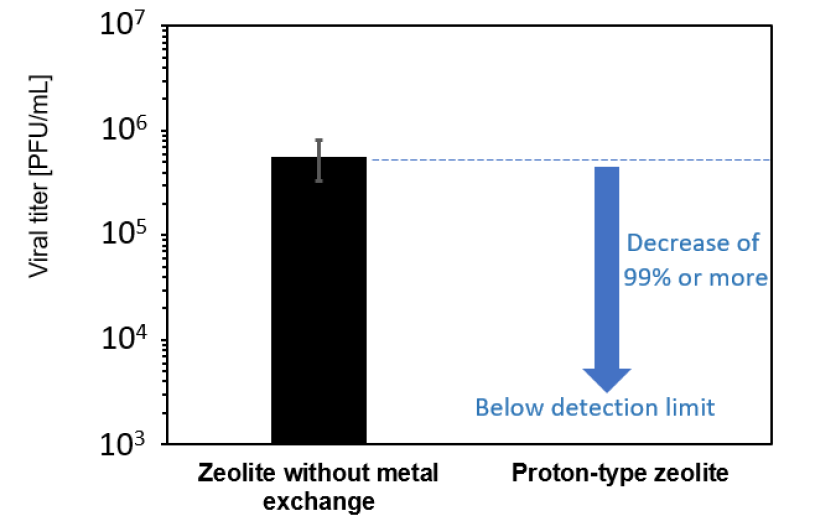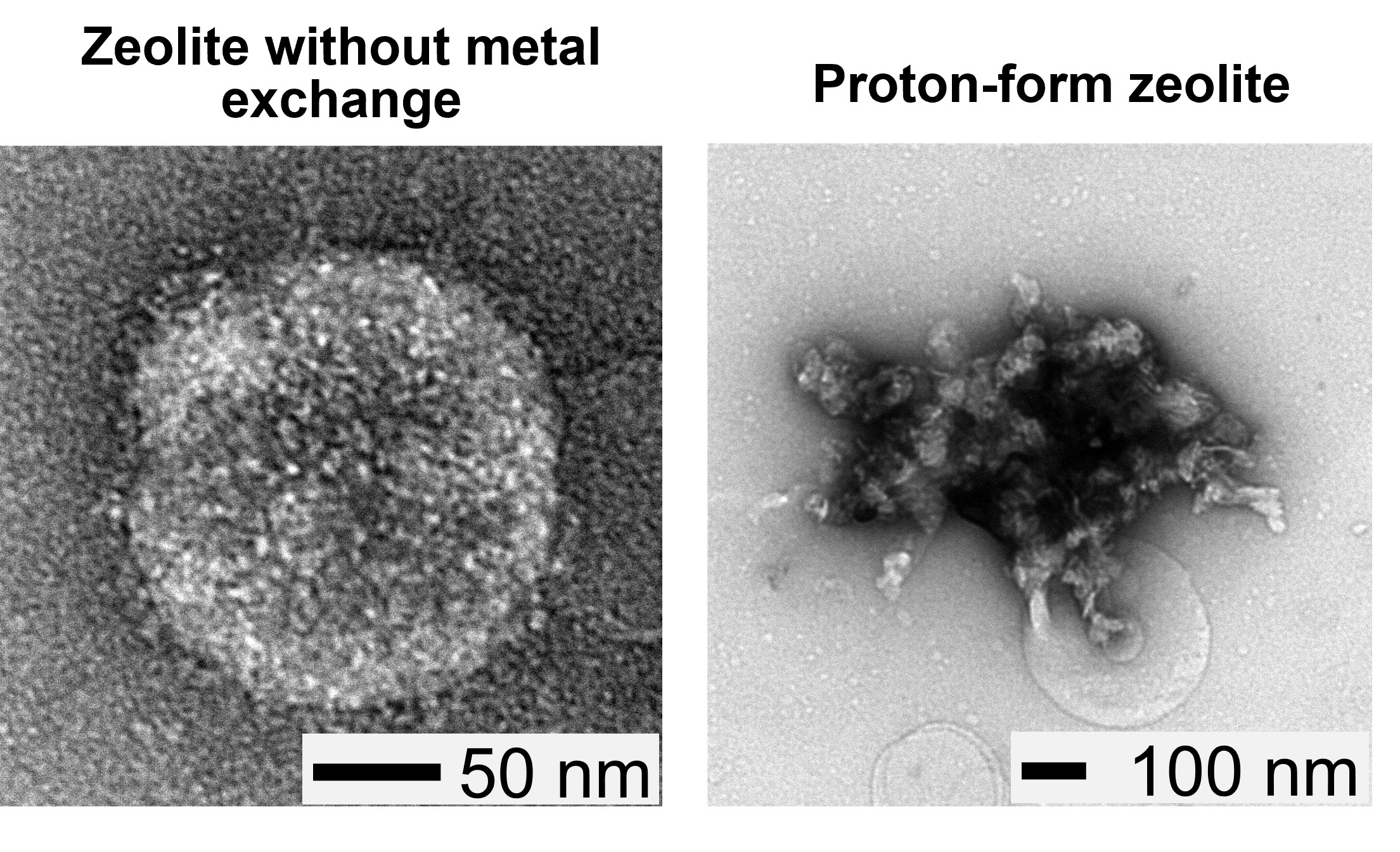- Research and Development
- 2023.03.15
The University of Tokyo and Nippon Paint Discover Novel Anti-viral Activity of Proton-Form Zeolite

*Note: This document has been translated from a part of the Japanese original for reference purposes only.
March 15, 2023
Nippon Paint Holdings Co., Ltd.
The University of Tokyo and Nippon Paint Discover
Novel Anti-viral Activity of Proton-Form Zeolite
――a promising new low-cost, discoloration-resistant anti-viral material with prospects for many applications――
Key findings
◆ The research has revealed that proton-form zeolites have powerful anti-viral properties even without metal cation ion-exchange, such as silver ion (Ag⁺).
◆ Zeolites that have been commercialized as anti-viral and anti-bacterial materials are metal cation-exchanged zeolites with disadvantages such as high cost and discoloration.
This joint research project has found that proton-form zeolites are resistant to viruses and discoloration.
◆ Proton-form zeolites have good prospects for many more applications as a low-cost and discoloration-resistant anti-viral material.
 Figure 1: Mechanism of viral destruction
Figure 1: Mechanism of viral destruction
Overview of research findings
A research group led by Professor Toru Wakihara of Graduate School of Engineering at the University of Tokyo and Nippon Paint Holdings Co., Ltd. has found that proton-form zeolites (Note 1) have an excellent inactivation effect against the influenza virus and the COVID-19 virus. This finding shows that proton-form zeolites have good prospects as a novel anti-viral material that is inexpensive, resistant to discoloration and suitable for many applications.
This research conducted as part of the joint research program based on the Industry-Academia Co-creation Agreement between The University of Tokyo and NPHD concluded on May 18, 2020.
Details of research findings
<Background>
COVID-19 has been going viral for a couple of years now. It is believed that pathogenic viruses including the influenza virus and novel coronavirus can be transmitted via droplets as well as via contact with walls and other places such as handrails, doorknobs, and power switches where aerosol particles (Note 2) were deposited or which were touched by infected people. As a result, alcoholic disinfection of surfaces and fingers is recommended in order to prevent viral transmission via contact with surfaces. However, alcohol disinfection is not effective for a long time, and consequently is not able to control the spread of infections sufficiently. In order to solve this problem, the research group is conducting experiments with the goal of developing materials and coatings that have anti-viral efficacy on many types of surfaces.
Zeolites, which are crystalline porous materials, especially silver ion (Ag⁺)-exchanged zeolites, are known to have anti-bacterial properties. In fact, there are many practical applications for Ag⁺-exchanged zeolites. While there are many studies on the anti-bacterial properties of zeolites, there are still only a few studies on the anti-viral properties of these materials. Ag⁺-exchanged anti-bacterial zeolite materials have disadvantages involving high cost caused by the use of Ag⁺ and the discoloration of materials. Therefore, we conducted research on zeolites that are both resistant to viruses and discoloration.
<Content of research>
The research group evaluated the anti-viral properties of proton-form zeolites through an anti-viral activation test using an influenza virus. We also observed the virus after contact with the material by using transmission electron microscopy, and examined the mechanism of virus destruction.
The results showed that the virus infection titer was reduced to below the detection limit when influenza viruses were in contact with proton-form zeolites compared to when the virus inactivation test was conducted using zeolites without metal cation (Note 3) ion-exchange (Fig. 2). In addition, it was observed that viruses which contacted zeolites without metal cation ion-exchange retained their spherical shape, whereas viruses which contacted the proton-form zeolites were destroyed (Fig. 3).
The results of the study indicated that the anti-viral effect of proton-form zeolites comes from the partial damage of the viral envelope when zeolites contact the virus, which leads to the total destruction of the virus.


Figure 2: Results of anti-viral test using influenza viruses Figure 3: Transmission electron microscopy images of viruses
<Future prospects>
The study has found that proton-form zeolites are a promising novel material with powerful anti-viral properties even without metal cation ion-exchange, such as with Ag⁺. We have high expectations that proton-form zeolites will be used in many applications as an anti-viral material featuring low cost and discoloration resistance through research on anti-viral materials and coatings, making a significant contribution to reducing the risk of viral infections.
【For reference】
<About the social contribution program>
This research work was conducted based on one of the joint research themes of the social collaboration program “Creation of Innovative Coating Technology,” which was established as an activity under the Industry-Academia Co-Creation Agreement between The University of Tokyo and NPHD. The social collaboration program covers the five-year period from October 1, 2020 to September 30, 2025.
<Related press release>
The University of Tokyo and Nippon Paint Holdings Establish Japan’s First Corporate-Sponsored Program Around the Concept of Paint and Coatings (dated November 24, 2020)
https://www.nipponpaint-holdings.com/en/news_release/2020112401
Presenters
Graduate School of Engineering, the University of Tokyo
Mr. Toru Wakihara (Professor)
Mr. Kenta Iyoki (Instructor)
Ms. Yuka Kimura (Master’s course student at the time of this research work)
Nippon Paint Co., Ltd. Technology Division Research & Development Department
Koichi Sato (General Manager)
Nobuhiro Miyamae (Product Development Group Manager)
Yuki Egami (Product Development Group)
Glossary
Note 1. Proton-type zeolite: zeolite possessing proton as charge compensator
Note 2. Aerosol: A mixture of minute liquid or solid particles suspended in a gas
Note 3. Metal cation: Metal with positive charge


